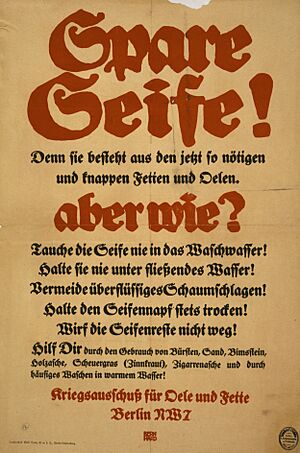Command economy facts for kids
A command economy, also called a planned economy, is a way a country organizes its money and resources. In this system, the government makes almost all the big decisions about what to produce, how much to produce, and who gets it.
In any economic system, important choices must be made. These include how to use resources like workers, money, and natural resources such as oil. Prices are also usually controlled by the government in a command economy. This is very different from a market economy, where many different people and businesses make their own decisions.
How Does a Command Economy Work?
In a command economy, a central group, usually the government, decides everything. They plan what factories will make, what farms will grow, and what services will be provided. The idea is that this central group has all the information and can make the best choices for everyone.
For example, during big wars like World War II, some countries used a command economy. The government told factories to stop making cars and start making tanks or airplanes instead. This helped them focus all their efforts on winning the war.
What Are the Challenges?
Some experts, like an economist named Friedrich Hayek, believed that it's impossible for any government to know everything. He thought that even the smartest planners can't predict all future events or understand what millions of people truly need. Because of this, decisions made by the government might not always be the best ones.
Another challenge is that a command economy can be slow to change. If something unexpected happens, like a new invention or a sudden change in what people want, it's hard for the government to quickly change its plans. A market economy, where many different businesses are always trying new things, can often adapt much faster.
Also, some economists, like Ludwig von Mises, pointed out that without competition, there's less reason to invent new things or find better ways to do things. If the government is the only one making decisions, businesses might not feel the need to innovate.
Where Have We Seen Command Economies?
Historically, many countries have used command economies. After World War I and a civil war, the Soviet Union was a very poor country. But by using a command economy, it grew very quickly. They built many new factories and houses, and brought electricity to millions of people. In just a few decades, the Soviet Union became a very strong country and even started sending people into space!
Communism is a type of government system that often uses a command economy. Today, North Korea is one of the few countries that still has a mostly pure command economy. Many other countries that used to have command economies, like the countries in the Eastern Bloc (which were allied with the Soviet Union) and China, have now changed. They use a mixed economy, which means the government still has some influence, but businesses and individuals also make many decisions.
 | Jessica Watkins |
 | Robert Henry Lawrence Jr. |
 | Mae Jemison |
 | Sian Proctor |
 | Guion Bluford |



